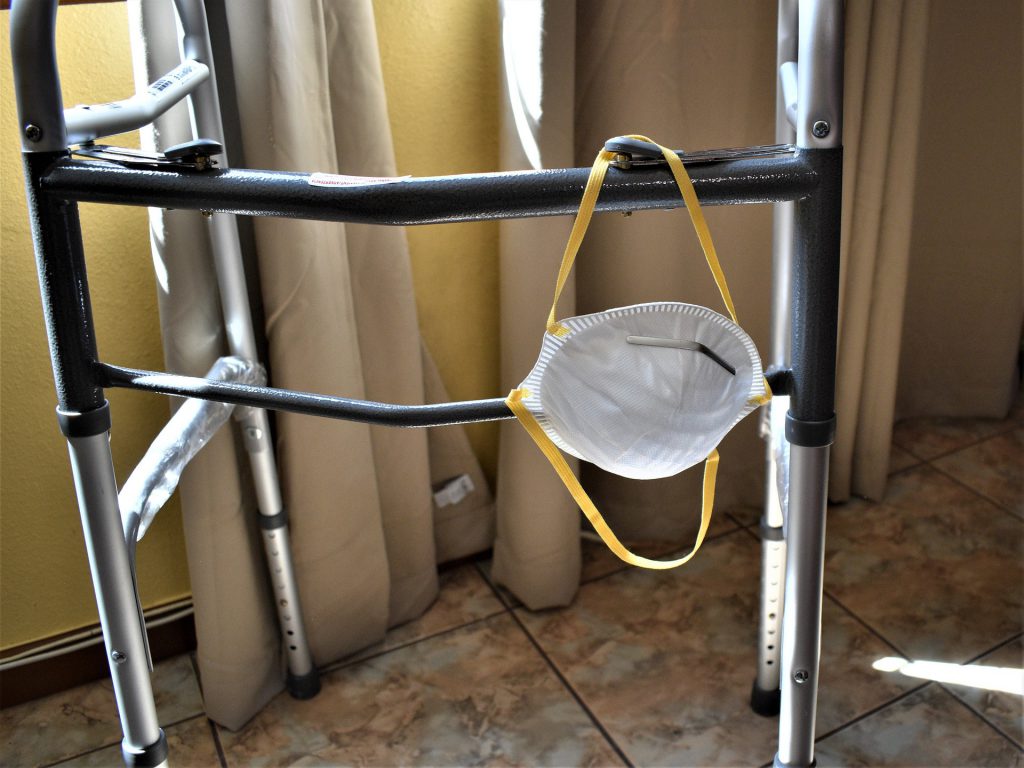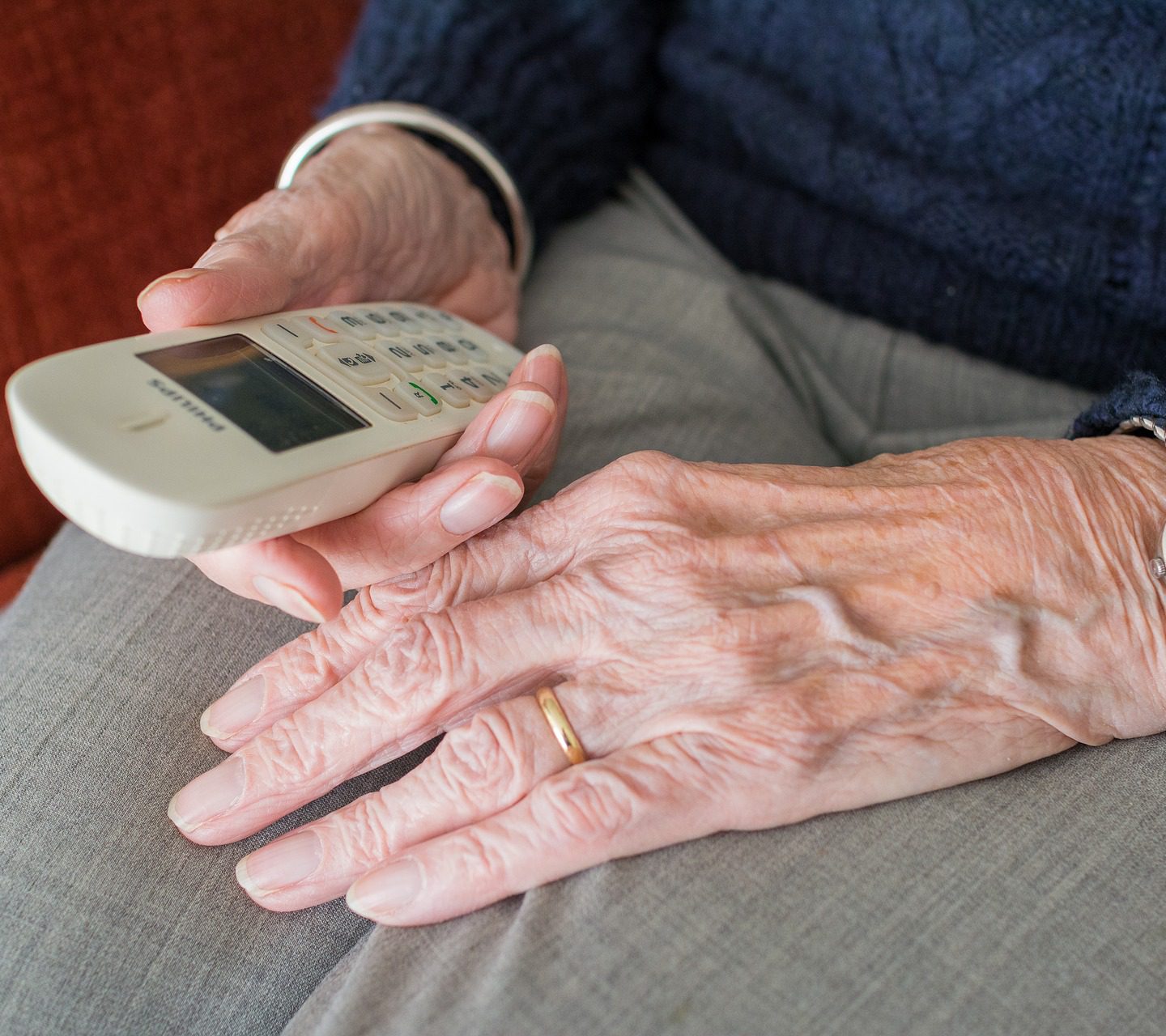The COVID-19 pandemic continues, and there are no indications that it will end anytime soon. Even though the epidemic started in China, the patients in other regions are growing and the number of infected as well as victims of the virus around the world is constantly increasing. In the past week, the cases of SARS-CoV-2 coronavirus have increased by 8% compared to the previous week. That means that we have over 3.6 million new cases on the globe. The new deaths have also increased to over 54 000, which is 21%. This brings the cumulative numbers to over 49.7 million reported cases and over 1.2 million deaths globally since the start of the pandemic (WHO, 2020).
Although all age groups are at risk, the severity and outcome of the disease largely depends on a patient’s age. Now, with many restrictions being implemented by different countries that are based on social distancing, it especially impacts the most vulnerable ones, who not only lack digital skills, but also the majority of the technological gadgets are out of their reach. Most of them did not grow up in an Internet environment, and using a smartphone, not to mention a laptop or a tablet, can be a challenge. To stay connected with their families they still use the old-fashioned, traditional cable phone instead of a mobile, and very often TV is the only company, source of information and in many cases so called effective time killer.
I can certainly confirm this fact looking back at my grandparents, who may have been quite interested in the technology, but not really so keen on using it themselves. A few years ago, I remember we searched for a simple mobile phone for grandma, so that she can keep the device nearby, while starting to suffer from mobility issues. At that time, it was still quite challenging to find a senior-focused phone that wouldn’t be filled in with unnecessary apps and tools of no use to her. In fact, even my phone contains plenty of attention-seeking, distracting content that I would gladly reduce to a minimum. Cutting a long story short the grandma was ultimately left with her favorite landline phone laying down on the kitchen cabinet, remaining as the only mean of communication with the family.
Who would have thought, several years ago, that an outbreak of Sars-Cov-2 would happen in 2020, and a whole new context of ICT usage will emerge. In many countries, visits to nursing homes have been banned, the covid-19 zones at the hospitals are not open to public, leaving relatives to die alone and in fear. Governments, who have set the new policies to avoid the spread of the virus, seem to have overlooked one of the most vulnerable corners of society, with terrible consequences. How many daughters or sons, grandchildren had to say goodbye to their parents and grandparents from behind the screen, through the phone or maybe not even that, robbed of the chance to say a final farewell, or give a last hug?
…the scale of the scandal strikes me as a betrayal of our supposed commitment to the value of individual human life, and requires solutions that are fundamental, in addition to the policy prescriptions. One avenue is a renewed emphasis on the value of caregivers – in nursing homes and beyond. – says Kareem Shaheen, a veteran Middle East correspondent in Canada and a columnist for The National.

Especially in recent months, it has been highlighted by the media to practice social distancing but not social isolation. However, this is not always possible for the elderly, who have limited or no access to ICT, or simply lack the necessary skills. Moreover, minority older people are quite often considered as being among the poorest members of their countries. The new reality is that this group becomes especially affected by loneliness and social isolation, and therefore we should put more effort into supporting people’s mental health like never before. In the current situation of Covid-19, promoting variety of self-help solutions and minimizing isolation also via technology becomes imperative. Active outreach stimulating positive coping, spiritual solace and support seems to me a necessity for older adults in particular. It is also crucial for the governing bodies to promote awareness among the rest of the society as well as the caregivers and healthcare representatives, who could foster the change, prepare families for the future and maybe in some cases make a difference, no matter how significant it could be. I still don’t have the answer to what is the best solution in such difficult times or how to avoid dramatic situations of isolations and lonely deaths, but I guess being human to other human being is the key. This would also need to concern the policymakers…who must recognize human beings, not just numbers in the statistics.
How do you feel about advantages of being ICT-savvy in the new realm? Would you like to share your ways of coping with the lockdown, work from home, loneliness etc? How do you keep in touch with your family? What are your fears? Please share in the comments below.
* * *
Personal reflections:
This is my last blog post for the group assignment in New Media, ICT and Development course, which was one of the most interesting, self-developing and challenging courses in many different ways.
Throughout this blogging exercise I have definitely learned a lot, experienced many points of view, as being as part of the group, and discovered topics that are close to my heart. I could confidently say that it was one of the best ways to develop new skills and to think around the different themes connected with the course. Yes, putting things into words on the screen seems to me now as absolute best way to think through and reflect, to gather my thoughts, to analyze them, to put them into structured, sense-making expressions and then to develop new ideas or standpoints. I believe, this is also how I realized what areas of ComDev I would like to immerse myself into and what topic I could possibly consider as my degree project.
Blogging is an immense way to expand thought process and specific knowledge because by researching a topic you want to cover you learn new things and by writing about it you fully develop the knowledge bank. Here, an amazing opportunity arises to share an academic knowledge and smuggle the notions of literature to a wider public. I have not only gained by writing myself, but also by reading my fellow students blogs, which were fascinating and certainly caught my interest in new spheres that I never considered as my destination.
What I have learned in the process of creation is that the social media is an absolute key in developing network and bringing the traffic, especially when you are starting out and you don’t have any organic authority. Social media has made it easier than ever before to reach and connect with our ideal demographic. It also helped us meet people or other groups on-line and benefit from that network.
After analyzing our blog, I could also conclude that infographics are very attractive as a content and bring a lot of traffic. In addition, I feel that visualization helps in developing thought capabilities. It helps to put something out there in a much more summarized, structured and quick to consume way. In fact, it is truly an art to pick the right words instead of writing lots of text without any limits. If I were to continue blogging in the future, I would definitely put an additional effort to develop visuals to attract or keep the audience. Now, thanks to one of my colleagues, I possess the knowledge on how to develop further in this field.
The uniqueness of this assignment lied in the ability to pick and try not only the particular topic, but also our own writing style. In a way it facilitated our own research to see how the reader would react, and which style would be most appropriate to win over the public.
Last, but not least I have realized how much time or effort blogging work consumes, how broad ComDev area is, and how much more there is to read, write, discover and ultimately also to contribute with a meaning.
Desclaimer:
I dedicate this post to all, who have lost their loved ones due to the Covid-19, as well as to my grandmother, who has recently passed away after being separated from the family and remained in the isolation till the last moments of her life without being able to say goodbye. #RIP
References:

